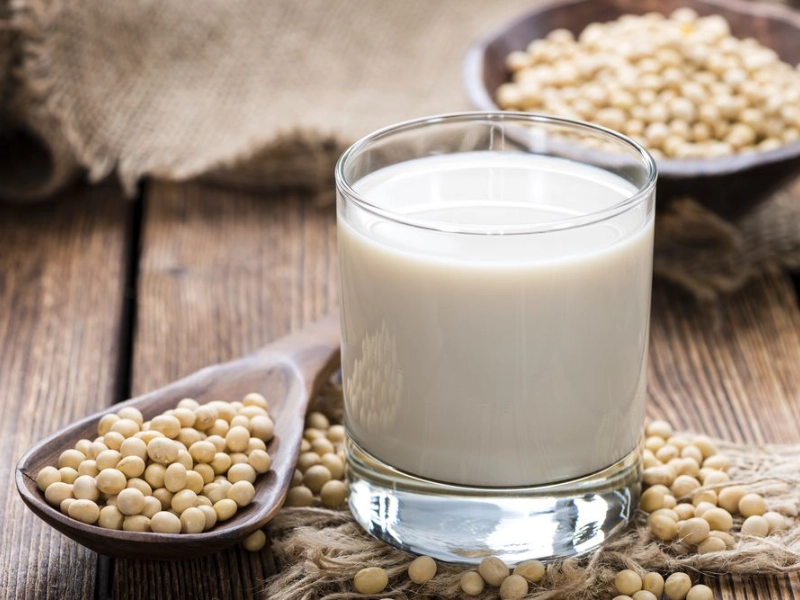7. Soy Milk: A Protein-Rich Plant-Based Option

Particularly appreciated for its thickness and nutritional profile that almost reflects that of whole milk, soy milk is a great plant-based substitute for evaporated milk. For anyone looking for a dairy-free alternative without sacrificing protein count or general nutritional value, this makes it the perfect fit. Because soy milk is so flexible, it may easily fit into a great variety of cooking and baking recipes, even savoury ones.
Neutral taste character of soy milk is one of its main benefits. Although it tastes somewhat different from dairy milk, this difference is almost invisible when soy milk is blended with other ingredients in cooking or baking. For those who want to eliminate dairy yet still preserve the unique taste character of their dishes, this quality makes it a great alternative.
Usually advised is a 1:1 ratio when substituting soy milk for evaporated milk. You would so use one cup of soy milk for every cup of evaporated milk called for in a recipe. It is noteworthy, nonetheless, that brand variations in soy milk consistency. Certain commercial soy milks could be thicker than others, more like evaporated milk in consistency.
There's a basic fix if you discover your selected brand of soy milk is too thin for the demands of your dish. To lower the soy milk's water content and therefore thicken it to a consistency more like evaporated milk, boil the milk for a few minutes. This procedure not only changes the texture but also sharpens the flavour, therefore approximating evaporated milk in both taste and consistency.
Soy milk is a nutritional powerhouse in and of itself, not only a replacement. It's a fantastic source of plant-based protein, sometimes comprising around 7 grams of protein per cup, which is comparable to dairy milk. Furthermore a nutritionally full substitute for dairy milk are numerous commercial soy milks, which are fortified with minerals and vitamins including calcium and vitamin D.

